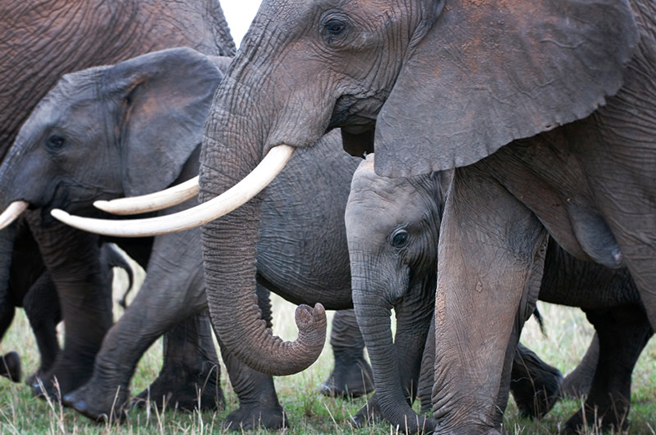The Chinese Government Can Stop the Ivory Market

When I heard about the news that China for the first time crushed 6.1 tons of ivory in public, I was just back from three months' field investigative reporting in Africa on Chinese involvement in wildlife trafficking—essentially focused on ivory and rhino horns. I was glad to see tangible action being taken in addition to general embassy announcements stating "Chinese always care about environment and wildlife." Finally, I feel that, we have something solid to show to the world. However, I also deeply understand that this big crush is not enough.
With the advantage I have of coming from a background as a Chinese researcher, coupled with my field investigative experience, I was one of the first Chinese journalists conducting field investigation in Africa on this topic. Over the course of several months, I travelled in Kenya, South Africa, Mozambique, and Namibia, and I met many Chinese individuals in Africa who consume ivory and rhino horn products. From my in-depth conversations with them, now I could confidently understand what these consumers are thinking. Therefore I say, regarding illegal wildlife product consumption, stricter oversight from the government will make the real difference in reducing wildlife trade.
The Chinese ivory buyers I spoke with told me that the most effective way to stop the consumption and sale of ivory is to increase punishment and to stop the loopholes. I believe their opinions are of the most important ones in this battle.
Therefore, to stop the Chinese ivory market, there are two necessary paths: one is most fundamental -- to heal the minds and to rebuild the morality, one is most direct -- to stop the loopholes and increase the punishment.
There are many obvious loopholes in the eyes of the smugglers.
The most important one is Chinese custom and the threshold of punishment. Therefore, despite the fact that checking luggage is not an easy job, if the tolerance to such products is decreased significantly, the consumer behavior would change significantly. There is an old Chinese saying: "Give the small crime big punishment, therefore people would stop doing it." In terms of ivory, if a small amount of ivory products could lead to years in jail, the Chinese market would decrease considerably.
I believe that this crush shows the Chinese government’s growing concern regarding the ivory trade. But, as a conservationist, I am expecting more, and I deeply believe that healing China’s ivory consumption will not only heal China, but heal all.